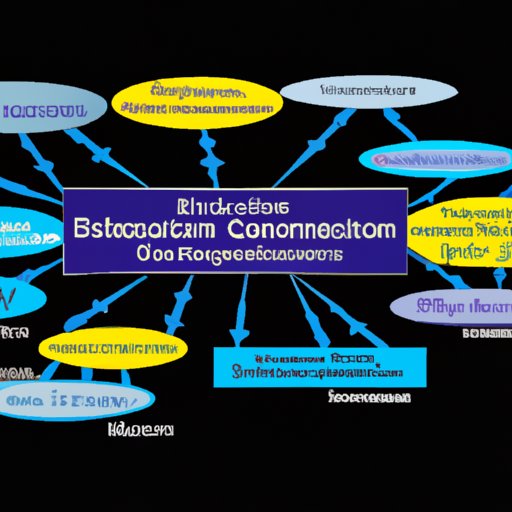Introduction
A Bachelor of Science (B.S.) degree is a four-year academic program that provides students with the knowledge and skills needed to pursue a career or further education in their chosen field. This article will explore the various aspects of a Bachelor of Science degree, including what it is, the types of B.S. degrees available, and the benefits and opportunities associated with earning one. Additionally, this article will provide advice on how to choose the right program and what to expect when applying for a B.S. degree.

A Comprehensive Overview of the Bachelor of Science Degree
Before diving into the details of a Bachelor of Science degree, it is important to understand what it is and why it is such a valuable asset. According to the National Center for Education Statistics, “A bachelor’s degree is a postsecondary degree awarded by colleges and universities upon completion of a course of study lasting four years.”
What is a Bachelor of Science Degree?
A Bachelor of Science degree is an undergraduate degree awarded after completing a four-year program of study. The curriculum typically includes classes in mathematics, science, engineering, and other related majors. Depending on the specific program, students may also take additional courses in the humanities, social sciences, and business. A B.S. degree is designed to prepare students for a wide variety of professions, from engineering to computer science to health care.
Types of Bachelor of Science Degrees
There are many different types of Bachelor of Science degrees, ranging from traditional degrees in the sciences to more specialized programs such as nursing and engineering. Some of the most popular B.S. degrees include: Biology, Chemistry, Computer Science, Engineering, Environmental Science, Mathematics, Nursing, and Physics. Additionally, some schools offer specialized B.S. degrees in areas such as Business Administration, Education, and Psychology.
What is Required to Earn a B.S.?
In order to earn a Bachelor of Science degree, students must complete a minimum of 120 credit hours, which typically takes approximately four years to complete. Credit hours are earned by taking courses in a variety of subject areas, including core requirements, electives, and general education courses. Additionally, some programs require students to complete a senior project or internship before graduating.

Exploring the Benefits and Opportunities of a Bachelor of Science Degree
Earning a Bachelor of Science degree can open up a number of doors for graduates. From increased employment opportunities to further education options, there are many advantages to having a B.S. degree.
Employment Opportunities with a B.S.
Having a Bachelor of Science degree can significantly increase a person’s chances of finding a job in their chosen field. According to a study conducted by the Georgetown University Center on Education and the Workforce, “People with bachelor’s degrees have more than double the employment rate of those with only a high school diploma.” This means that those with a B.S. degree are more likely to find employment than those without one.
Further Education Options After Earning a B.S.
Having a Bachelor of Science degree can also open up the possibility of furthering one’s education. Many people with a B.S. degree decide to pursue a master’s or doctoral degree in their field. Additionally, some employers may offer tuition reimbursement or other incentives for employees who decide to pursue higher education.
Financial Benefits of Earning a B.S.
In addition to the increased employment opportunities and further education options, having a Bachelor of Science degree can also lead to higher wages. According to the Bureau of Labor Statistics, “Employees with a bachelor’s degree or higher earned an average of $1,198 per week compared to those with a high school diploma who earned an average of $718 per week.” This shows that having a B.S. degree can lead to significant financial benefits.
What You Need to Know About Pursuing a Bachelor of Science Degree
When considering a Bachelor of Science degree, there are a few things to keep in mind in order to ensure a successful experience. From choosing the right program to understanding tuition costs and financial aid, here are a few tips to keep in mind when pursuing a B.S. degree.
Choosing the Right Program
When choosing a Bachelor of Science degree program, it is important to research different schools and programs to determine which one best fits your needs. Consider factors such as location, cost, and class size when selecting a school and program. Additionally, make sure to research the faculty and curriculum of each program to ensure it meets your expectations.
Preparing for the Application Process
Once you have chosen a program, it is important to prepare for the application process. This includes gathering all necessary documents and ensuring they are submitted on time. Additionally, it is important to research any scholarships or grants that may be available to help cover tuition costs.
Understanding Tuition Costs and Financial Aid
Tuition costs can vary greatly depending on the school and program, so it is important to research the cost of each program and determine if financial aid is available. Additionally, it is important to understand the different types of financial aid, such as loans, grants, and scholarships, and how they work.
An In-Depth Look at the Different Areas of Study for a Bachelor of Science Degree
A Bachelor of Science degree can be earned in a variety of fields, ranging from the sciences to the humanities. Here is an in-depth look at some of the most popular areas of study for a B.S. degree.
Popular Areas of Study
Some of the most popular areas of study for a Bachelor of Science degree include: Biology, Chemistry, Computer Science, Engineering, Environmental Science, Mathematics, Nursing, and Physics. Each of these fields offers its own unique set of challenges and opportunities, and students should research each one thoroughly before deciding which one is right for them.
Specialties Within Each Area of Study
Within each area of study, there are often specialties that students can pursue. For example, within the field of biology, students can specialize in areas such as genetics, microbiology, zoology, and ecology. Similarly, within the field of engineering, students can specialize in areas such as mechanical, electrical, civil, and chemical engineering. Students should research the different specialties within each area of study in order to determine which one best fits their interests and goals.

Strategies for Succeeding in a Bachelor of Science Program
In order to succeed in a Bachelor of Science degree program, it is important to develop good study habits and time management skills. Additionally, it is important to make connections with professors and other students in order to build a strong support system. Here are a few strategies for succeeding in a B.S. program.
Time Management and Organization
Time management and organization are essential for success in a Bachelor of Science degree program. Students should create a schedule that allows them to balance their studies with other commitments, such as work and family. Additionally, it is important to stay organized by keeping track of assignments and due dates.
Developing Good Study Habits
Good study habits are essential for success in a B.S. degree program. This includes setting aside dedicated study time, breaking down large tasks into smaller chunks, and reviewing material regularly. Additionally, it is important to find a study space that is free from distractions and conducive to learning.
Making Connections With Professors
Making connections with professors is another key strategy for succeeding in a Bachelor of Science degree program. This includes attending office hours, asking questions in class, and participating in extra-curricular activities. Additionally, building relationships with professors can lead to networking opportunities and potential job prospects.
Conclusion
A Bachelor of Science degree is an invaluable asset that can open up a world of opportunities. From increased employment opportunities to further education options, there are many benefits to having a B.S. degree. When considering a B.S. degree, it is important to research different schools and programs in order to find the right fit. Additionally, it is important to understand the application process, tuition costs, and financial aid options. Finally, developing good study habits and making connections with professors are essential for succeeding in a B.S. degree program.
(Note: Is this article not meeting your expectations? Do you have knowledge or insights to share? Unlock new opportunities and expand your reach by joining our authors team. Click Registration to join us and share your expertise with our readers.)
